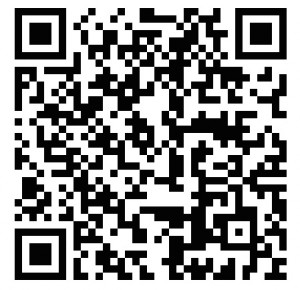The Columbia Journalism Review usually does a good job on the meta– going behind the story to get at the story of the story. But in one recent piece, their writer Danny Funt slipped up by failing to question the assumptions of the subjects of the story. And, as isn’t always the case, it matters.
The piece is about the NYT‘s resident Conservative Sage(TM), David Brooks. Brooks, you know, who writes those columns full of harrumphing about how we have lost our way as a civilization and probably deserve what’s coming to us; Brooks who is currently teaching a course at Yale with the modest title “Humility,” and who is recommended in the CJR article by such Conservative Deep Thinkers as Robert P. George of Princeton. The article adopts without demurral Brooks’s (and other American conservatives’) picture of what “morality” is and how it functions.
Brooks thinks a tradition of journalists fluent, or at least conversant, in moral concepts dissipated in recent decades. Theologians were walled off within their denominations, and public discourse about values grew dysfunctional. A life of “meaning” by today’s standard, he wrote in his Times column to begin 2015, “is flabby and vacuous, the product of a culture that has grown inarticulate about inner life.”
In general, Brooks contends, journalists balk at sharing moral viewpoints, and readers bristle upon receiving them. His critics find him an insufferable scold, a pompous sermonizer. “I think there is some allergy our culture has toward moral judgment of any kind,” he reflects. “There is a big relativistic strain through our society that if it feels good for you, then who am I to judge? I think that is fundamentally wrong, and I’d rather take the hits for being a moralizer than to have a public square where there’s no moral thought going on.”
So, cue up the old chestnut about “the Sixties,” when Ozzie and Harriet were replaced by Timothy Leary and Ken Kesey. Where will the “saving remnant” be found? Where are the adults? And so on.
The motif of “doing what feels good” comes up in what the CJR journalist recognizes is a “jarring” context– a context that will moreover give me my opening to start hectoring the hectorers.
At times, [Brooks] evokes moral awareness in peculiar contexts. On Meet the Press, in 2011, David Gregory asked Brooks and E.J. Dionne about the lack of accountability in the Penn State child molestation scandal.
“We have lost our clear sense of what evil is, what sin is,” Brooks said. “And so, when people see things like that, they don’t have categories to put it into. They vaguely know it’s wrong, but they’ve been raised in a morality that says, If it feels all right for you, it’s probably okay.”
“I think David is way too abstract here,” Dionne interjected, perhaps appropriately.
Now let’s back up here a little bit. The Penn State scandal was about a former assistant coach of football who took advantage of his position to force his sexual attentions on underage boys whom he had attracted to his sports-camp charity; it was also about the university hierarchy’s willingness to look the other way, as long as the football team was winning and the charity generated favorable buzz for the university. Brooks instinctively reaches for the diagnosis of Moral Weakness. The problem here is that we as a society don’t have the moral fortitude to resist those temptations! And when we see our neighbor falling prey to sensual temptations, we lack the fiber to say anything but “Hey man, whatever floats your boat”! Lacking “moral judgment of any kind”! Is the day of reckoning not at hand?
But the Penn State problem had to do with abuse of authority and a lack of concern for the powerless. It reminds one, doesn’t it, of the repeated scandals in the Catholic Church (that other wholesale purveyor of moral-collapse narratives), where it is priests, fortified by their sacramental function, power words like “evil” and “sin,” and the small likelihood that anyone above them is going to care, who prey on young, poor and thinly supported subordinates. Under the circumstances, I would think that the moral implement to start swinging around the room is not Weakness of Will, but rather Violations of Autonomy. And what do you know, there’s even a moral theory that takes autonomy to be its central value.
The ethics of autonomy arose with the Enlightenment, as I’m sorry to remind the fans of institutional religion who so often form the amen corner for the Brooks style of moralizing. Immanuel Kant said it well: Treat every other human being, not as a means to your end, but as an end in him- or herself.
When the other human being beside you is in a condition of impaired autonomy (underage, or starving, or in a coma, or unable to say No to you), you have a special duty to be exceptionally vigilant to preserve that person’s freedom of decision. If you prevail over that person, ignoring consent or the mere possibility of consent, you have, to say the least, failed in your duty to build the Kingdom of Ends. To put it in churchy language, you have sinned against the Likeness of God that is in every human being.
So who knew? Autonomy ethics is actually capable of producing statements about right and wrong! It can even turn back on Immanuel Kant and judge his performance unfavorably, when he treated as a matter of course the alleged incapacity of Africans to govern themselves, which was handy for making slavery less of a scandal. All this is well known in most parts of the world.
But in America, the person who treats “morality” like a personal franchise is the one who peddles narratives about promiscuity and indulgence, who pretends that autonomy is the same thing as indifference, who complains that the public square is a morality-free zone, who orients discussions toward a couple of personal favorites like the “collapse” of the family, the horror of abortion, and the lack of respect for elders and the law. (If the elders hadn’t so badly screwed up when they were in charge of the law, the young might respect them a little more.)
Also in America, the “morality” line skates right past such peccadilloes as organizing a massive campaign of lies and disinformation in order to pursue a needless war resulting in the deaths of hundreds of thousands of innocent people; covering up the cover-ups of the cover-ups, when questions were raised; depriving people of much-needed medical care in the absence of real fiscal imperatives to do so; giving refugees the heavo-ho; and so on. Those can’t be sins, because they weren’t committed by the recognized sinners. Non-procreative sex– why, there’s a sin for you.
And this Robert P. George, surely a nice man in private life, has written copiously on the crisis that is unfettered democracy, when “democratic institutions become mechanisms of injustice and oppression, thus defying the moral law to which they, like all human institutions and actions, are subject.” This “moral law,” you will have guessed, is that endorsed by his own preferred church, and in order to guarantee that no conflict will occur between civil authority and moral law, Professor George of Princeton is ready to take away portions of the autonomy (the rights) presently enjoyed by large sectors of the population who don’t belong to that church. Professor George’s maître à penser, Germain Grisez, was a little franker about his readiness to call for armed resistance to democratic “tyranny.”
To autonomy theorists, theocracy must appear immoral for the same reasons as, say, rape: forced assent to something that should absolutely be left up to the person’s rational deliberative faculties. But what do I know? I’m not a conservative columnist and I don’t teach “Humility” at Yale. I’m just mowing the Kantian grass in the green fields of relatively free speech.



